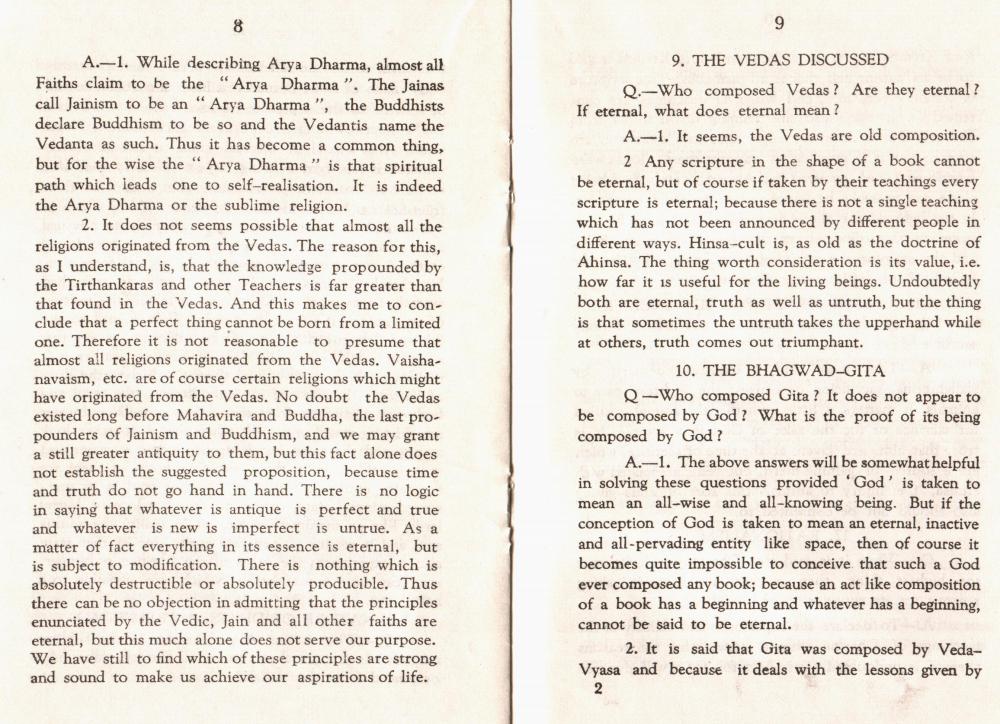________________
9
A-1. While describing Arya Dharma, almost all Faiths claim to be the “Arya Dharma ". The Jainas call Jainism to be an "Arya Dharma", the Buddhists declare Buddhism to be so and the Vedantis name the Vedanta as such. Thus it has become a common thing, but for the wise the "Arya Dharma " is that spiritual path which leads one to self-realisation. It is indeed the Arya Dharma or the sublime religion.
2. It does not seems possible that almost all the religions originated from the Vedas. The reason for this, as I understand, is, that the knowledge propounded by the Tirthankaras and other Teachers is far greater than that found in the Vedas. And this makes me to conclude that a perfect thing cannot be born from a limited one. Therefore it is not reasonable to presume that almost all religions originated from the Vedas. Vaishanavaism, etc. are of course certain religions which might have originated from the Vedas. No doubt the Vedas existed long before Mahavira and Buddha, the last propounders of Jainism and Buddhism, and we may grant a still greater antiquity to them, but this fact alone does not establish the suggested proposition, because time and truth do not go hand in hand. There is no logic in saying that whatever is antique is perfect and true and whatever is new is imperfect is untrue. As a matter of fact everything in its essence is eternal, but is subject to modification. There is nothing which is absolutely destructible or absolutely producible. Thus there can be no objection in admitting that the principles enunciated by the Vedic, Jain and all other faiths are eternal, but this much alone does not serve our purpose. We have still to find which of these principles are strong and sound to make us achieve our aspirations of life.
9. THE VEDAS DISCUSSED 0.-Who composed Vedas? Are they eternal ? If eternal, what does eternal mean?
A.-1. It seems, the Vedas are old composition.
2 Any scripture in the shape of a book cannot be eternal, but of course if taken by their teachings every scripture is eternal; because there is not a single teaching which has not been announced by different people in different ways. Hinsa-cult is, as old as the doctrine of Ahinsa. The thing worth consideration is its value, i.e. how far it is useful for the living beings. Undoubtedly both are eternal, truth as well as untruth, but the thing is that sometimes the untruth takes the upperhand while at others, truth comes out triumphant.
10. THE BHAGWAD-GITA Q-Who composed Gita ? It does not appear to be composed by God? What is the proof of its being composed by God?
A.-1. The above answers will be somewhat helpful in solving these questions provided 'God' is taken to mean an all-wise and all-knowing being. But if the conception of God is taken to mean an eternal, inactive and all-pervading entity like space, then of course it becomes quite impossible to conceive that such a God ever composed any book; because an act like composition of a book has a beginning and whatever has a beginning, cannot be said to be eternal.
2. It is said that Gita was composed by VedaVyasa and because it deals with the lessons given by




